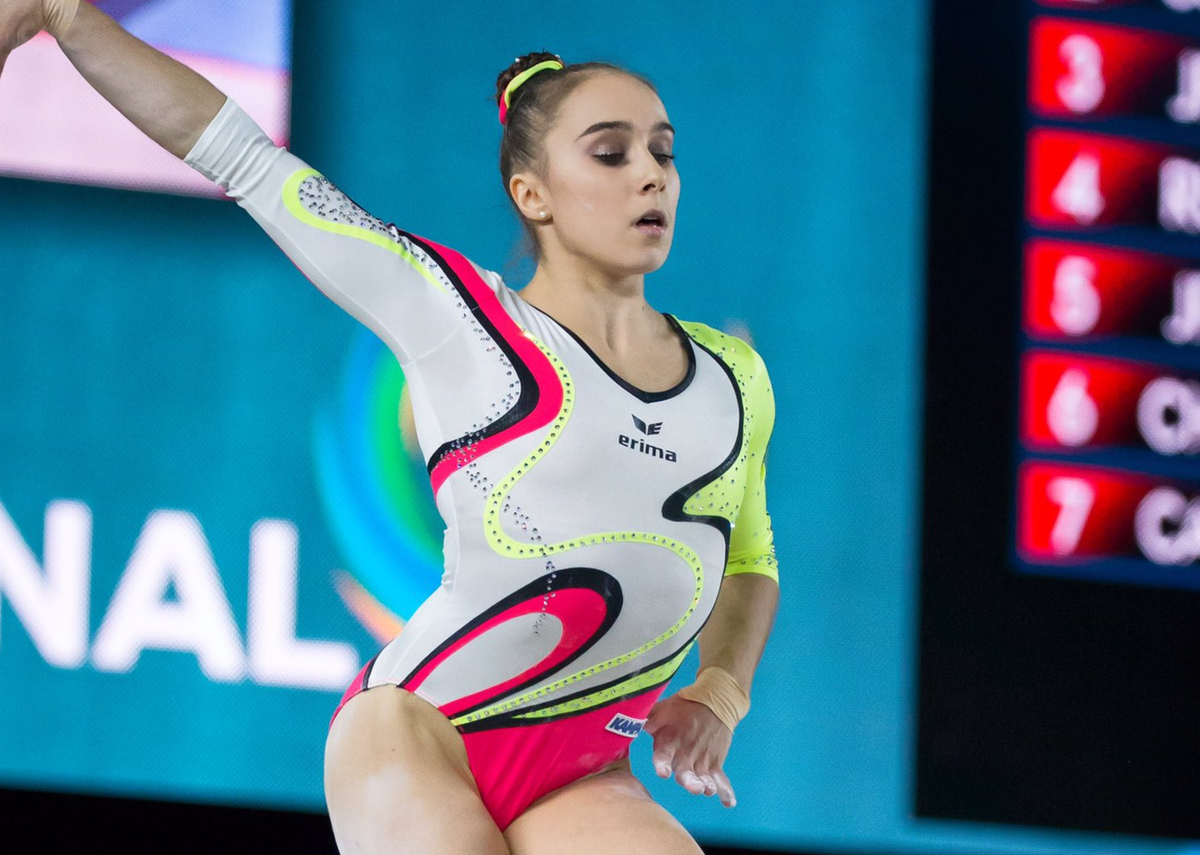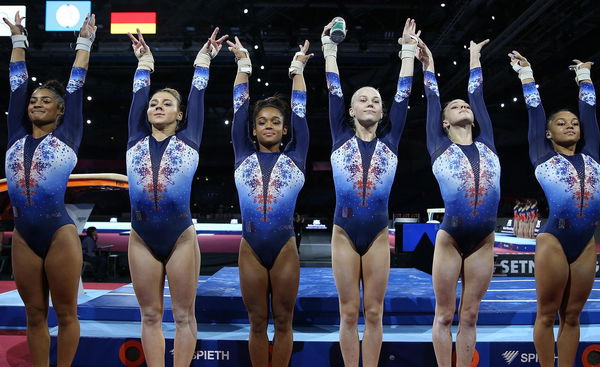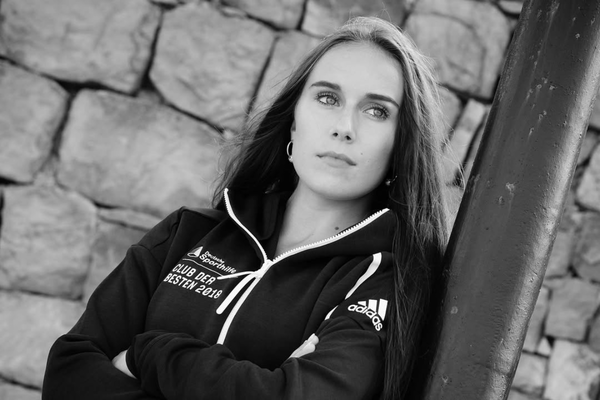

As 2024 wraps up with some standout performances at the Paris Olympics, the German Gymnastics Association is ending the year on a much darker note. The National Gymnastics Base in Stuttgart is facing serious abuse allegations from both current and former gymnasts. Athletes have been taking to social media to share shocking claims of physical and mental abuse by individual coaches, leveling serious accusations at the German Gymnastics Federation (DTB) and the Swabian Gymnastics Federation (STB). In response, both associations are stepping up to address the concerns and make changes after these major revelations from gymnasts.
Watch What’s Trending Now!
When the spotlight turns negative, image protection becomes crucial, and that’s exactly what the German gymnastics associations are trying to do in the wake of serious abuse allegations from athletes. According to SWR Sport, both the German Gymnastics Federation (DTB) and the Swabian Gymnastics Federation (STB) have come forward with a statement addressing these concerns.
The associations stress that all complaints from athletes, whether current or former, are being taken seriously and investigated thoroughly. They acknowledge the impact of these ongoing accusations, which, according to SWR Sport, have revealed allegations of “systematic physical and mental abuse” at the Stuttgart training base. Notably, gymnasts like Tabea Alt, Kim Bui, and Michelle Timm have publicly spoken out about their experiences, adding weight to the allegations.
ADVERTISEMENT
On December 28, the federations responded to SWR in a statement that read, “The German Gymnastics Association (DTB) and the Swabian Gymnastics Association (STB) take the public debate and the allegations about the mental health of competitive gymnasts very seriously. In this context, the DTB and STB have concrete information about possible misconduct on the part of responsible trainers at the federal base in Stuttgart.”

In addition to their reassurances, the DTB and STB have pledged a thorough investigation, aiming to address not only the actions of the coaches but also to identify potential systemic failures within their high-performance structures. They explained that the investigation will focus on “potential misconduct by coaches, as well as flaws in the high-performance sports system at national training centres and the handling of warning signs within the STB and DTB structures.”
ADVERTISEMENT
In a joint statement on December 31, 2024, both federations expressed their concern over the mounting accusations and reiterated their commitment to taking all complaints seriously. They assured the public that these complaints would be fully investigated and that this approach would continue moving forward. “All complaints and tips were taken seriously and followed up on, and this will continue to happen in the future,” they emphasized.
Despite the gravity of these claims, both associations confirmed that training would proceed as planned, with sessions resuming on January 2, 2025. However, they did announce some changes aimed at addressing the situation. Starting on January 7, 2025, national coach Gerben Wiersma and junior national coach Claudia Schunk will take over the training duties in Stuttgart. While no specific personnel changes have been made yet, the STB did refer to the “personal rights” of those involved, leaving some aspects of the investigation unclear. With these positive changes starting to take effect, it’s clear that the gymnasts’ concerns are highlighting a deeper, ongoing issue within the German gymnastics federation.
ADVERTISEMENT
The allegations made by renowned German gymnasts
From her early training days in Stuttgart under coach Marie-Luise Mai, Tabea Alt, the 2017 World bronze medalist on the balance beam and 2016 Olympian, was destined for greatness. But behind the scenes, a darker reality was unfolding—one that Alt recently unveiled in a December 28 Instagram post, exposing years of alleged abuse and neglect within the competitive gymnastics system.
Top Stories
Bengals’ Cam Taylor-Britt Sentenced to Jail: Everything We Know About Charges Against Him

Bill Cowher’s Strong Message to Steelers on Firing Mike Tomlin After HC’s Blunt Playoff Message

Pebble Beach Looks Unrecognizable as Harsh Weather Destroys Iconic Golf Course

Bill Belichick & Patriots Abandoned RB Battling Cancer, Then Forced to Join Dolphins

PGA Tour Hands Veteran Pro 1-Year Ban Despite Severed LIV Golf Ties

Phil Mickelson’s LIV Golf Hope Shatters After Akshay Bhatia Decision

Alt’s courageous revelations have sparked a wave of other gymnasts sharing their own stories of suffering. Alongside her, gymnasts like Meolie Jauch, Emelie Petz, Amelie Pfeil, Catalina Santos-Moran Díaz, Michelle Timm, and Pauline Schäfer-Betz have also shed light on the pressure and physical harm that plagued their careers. Back in 2021, Alt herself tried to warn the German Gymnastics Federation (DTB), submitting a 38-page letter detailing her experiences—only for it to be brushed aside. “It was ignored or not taken seriously,” she shared.
ADVERTISEMENT
Alt, a 2016 Olympian and 2017 World bronze medalist, has now turned to social media to speak out against the abuses she endured, risking her career in the process. “It is not an isolated case: eating disorders, punishment training, painkillers, threats and humiliation were the order of the day. Today I know it was systematic physical and mental abuse.”
With her bold statements, Alt has joined a growing chorus calling for change in the sport. “Misconduct by individual trainers and tears should be investigated, as should the competitive sports system in general at which the associations apply. Still the maxim of human performance in sports. This should now be ensured with everyone involved.”
Michelle Timm, another elite gymnast from Germany, has also spoken out, sharing her concerns about the culture at Stuttgart since her career days in 2015. It’s not just the former athletes who are speaking up—current gymnasts are starting to share their stories too.
ADVERTISEMENT

ADVERTISEMENT
Meolie Jauch, who retired in 2023 after taking silver in her first World Cup, opened up about the mental pressures she faced. “The hall that was my home for so long is now a place where I no longer feel so comfortable.” Meanwhile, uneven bars specialist Emelie Petz, once a two-time junior national champion, struggled with eating disorders and eventually had to retire in 2023 due to an Achilles tendon injury. Her experience mirrors that of Kim Bui, who represented Germany at the 2012, 2016, and 2020 Olympics.
After retiring in 2022, Bui also revealed the hidden struggles of her career. “I am deeply moved and full of respect for the courage of my former companions,” she said. “I know from my own experience how difficult it is to find your own voice and speak out against a system that seemed untouchable for so long.”
Elizabeth Seitz, a well-respected figure in German gymnastics, echoed the urgent need for reform. “Something has to change to finally create a healthy environment for everyone for the future of German women’s gymnastics!” She believes the stories from these gymnasts are far from normal. “Unfortunately, this is not the first time we have heard the statements, accusations, and allegations that we have had to read in recent days. I used to think that it was normal. Today I can say: It is not normal.”
ADVERTISEMENT
For gymnasts like Janine Berger and Carina Kröll, the need for change at the Stuttgart gymnastics base is undeniable. The pressure from coaches and the toll it takes on athletes’ well-being is impossible to ignore.
Lara Hinsberger, one of the last to speak out, shared her painful experience. Reflecting on her teenage years, she said, “I was used. And that was until I was so mentally and physically broken that I lost all value for the trainers and for myself too.” It’s clear now that the silence of the past must end. The German and Swabian Gymnastics Federations must not only address these serious allegations but also work to rebuild trust by creating a safe and supportive environment for the athletes.
ADVERTISEMENT
ADVERTISEMENT
ADVERTISEMENT

